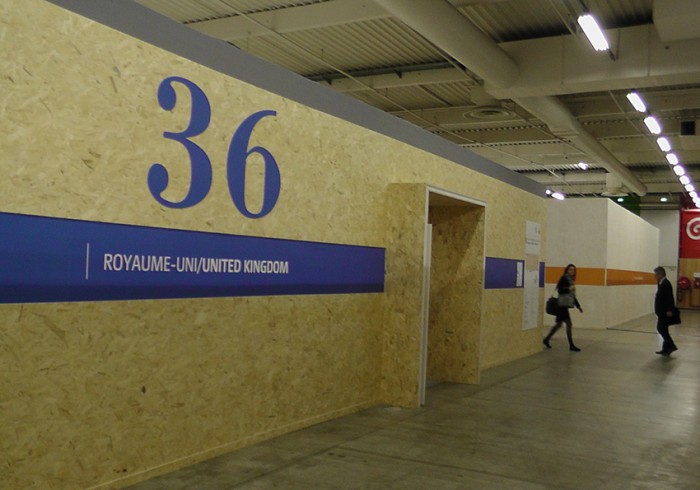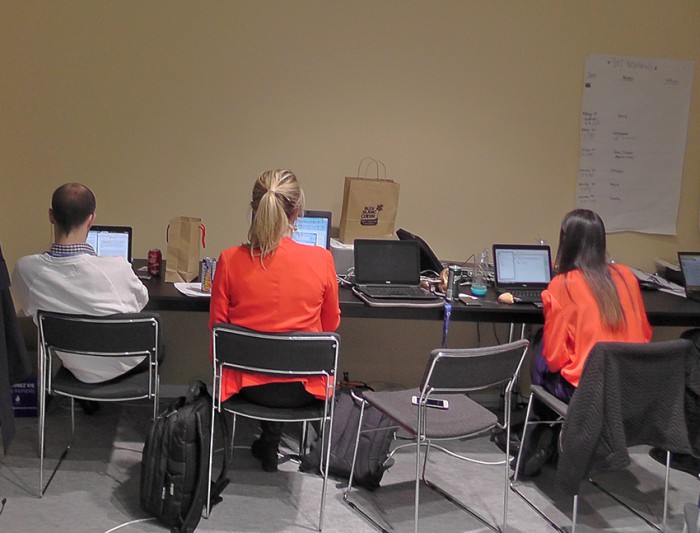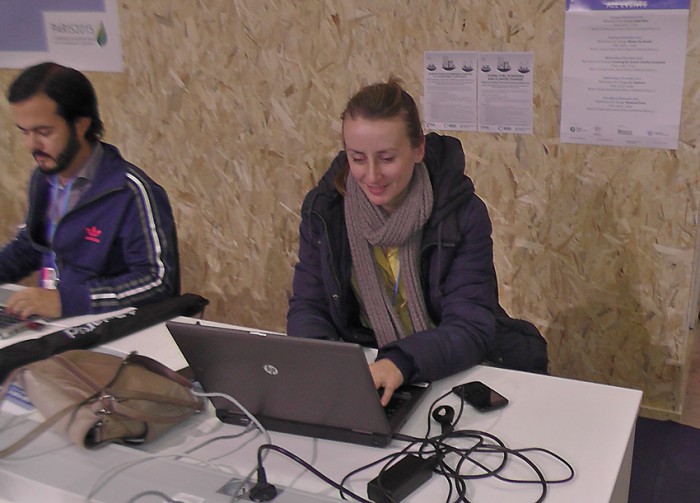11th December 2015 Paris, France
COP21: the best things come to those who wait

This time last week we were at the start of COP21. The conference centre was smelling of woodchip (you can really tell how hard France have worked at making COP21 sustainable), there were still freebies being handed out, delegates were relatively smiley and positive (directly proportional to the quality/quantity of freebies and coffee, I have found).
Negotiations were only just underway, so I left you with an evasive holding reply – “more next Friday!”

Here we are, then, a week later. What’s happened? You’ve probably been keeping a vague eye on the news, and that is enough to know the basics: on 5 December the co-chairs of the process (US and Algeria) gave a text to the French Presidency. France then took over the reins, consulting other countries (the “Parties” – the “P” in COP) on process and content. Minister Fabius presented a draft text late last night, and bid everyone to go away and discuss (rather than sleep on) it.
With the clock now ticking to agree a final draft (can anyone else hear the Countdown music, or is it just me?) Fabius’ special team of ministerial envoys, including our very own DECC Secretary of State, Amber Rudd, must today try to build consensus over the difficult issues.
What are the difficult issues? Well, here’s a rather playground-esque summary:
1) Differentiation (or:“He started it!”). CO2 levels began rising with the industrial revolution (GREAT in some ways, but perhaps not so much for the planet). Developing countries argue that those who are historically responsible for emissions should have greater responsibility in emissions cuts/that their own economic development should not be curtailed by having to reduce their emissions.
2) Finance (or “Show me the money!”). Even if the green economy is ultimately a win-win in the long-term, it can be costly to reduce emissions short-term (i.e. developing renewable energies, energy storage, avoiding deforestation) or adapt to existing climate impacts (agriculture, adverse weather conditions, etc). This is why the UK and others have pledged to the new Green Fund to contribute to the agreed global target of 100bnUSD by 2020 in public and private climate finance.
3) Legally binding (or “you said, we did”). How do we turn words into action? Answer: in lots of different ways. Is it the reduction itself which is obligatory? or the need to make a commitment in the first place? Or how we measure/report those commitments?
4) Review cycles (or “delivering at pace”). Consensus is gathering around the idea of reviewing emissions reductions commitments every five years, with tentative agreement on a principle called backsliding (or rather, no backsliding): promising to increase efforts at every new cycle.
This is a simplistic picture, but it shows how complex an issue climate change is – and why it has taken so long to make the unanimous progress that the UN requires.

So the crucial question is, as I sit here with my recyclable-plastic COP21 eco-cup of coffee, surrounded by less-smiley delegates, odd plastic animal sculptures, and even the smell of raclette cheese and white wine (we are at a French COP, after all): are we going to be able to find a solution to those issues by Saturday?
Wait a minute, I hear you cry: didn’t Minister Fabius say it would all be done and dusted by Friday? Well, yes. France had been aiming for a deal by this evening: waving farewell to delegations departing on trains and planes (evidently offsetting any associated carbon footprint). But given the difficulties around the issues above (and others) the talks have been extended by 24 hours.
Fear not, though, for our courageous FCO and DECC colleagues. To help them COP-e in the final throes, BE Paris have ensured that the UK delegation office is well-equipped with tea, Haribo, and even sleeping bags.
So, I’m afraid we must end with another holding reply. But perhaps that’s not a bad thing: after all, the best things come to those who wait… right?
